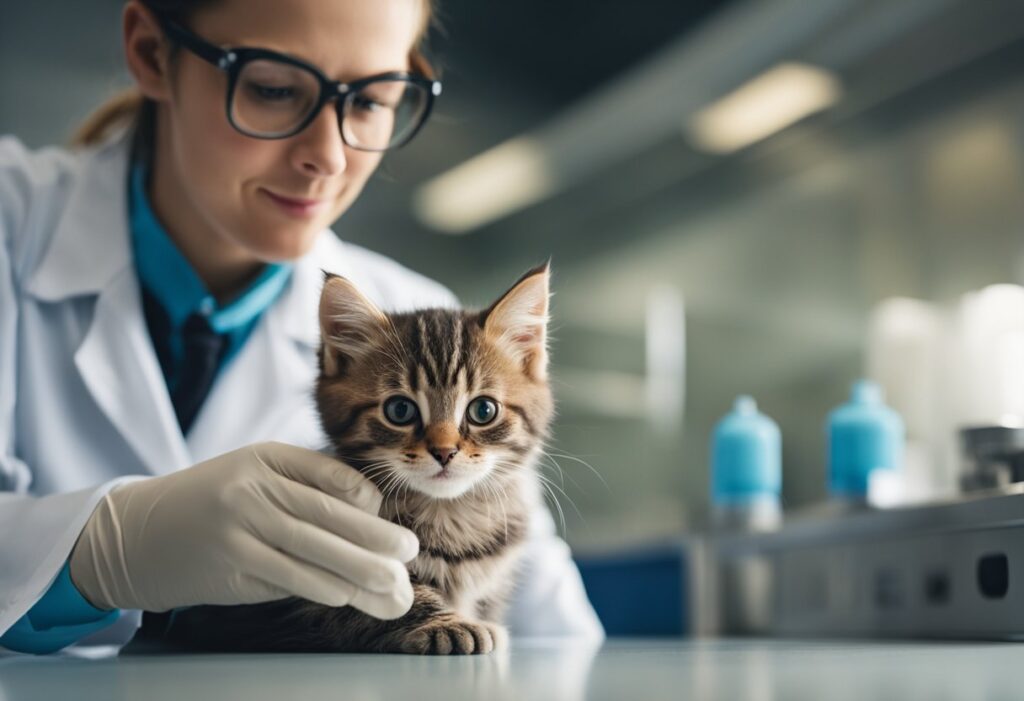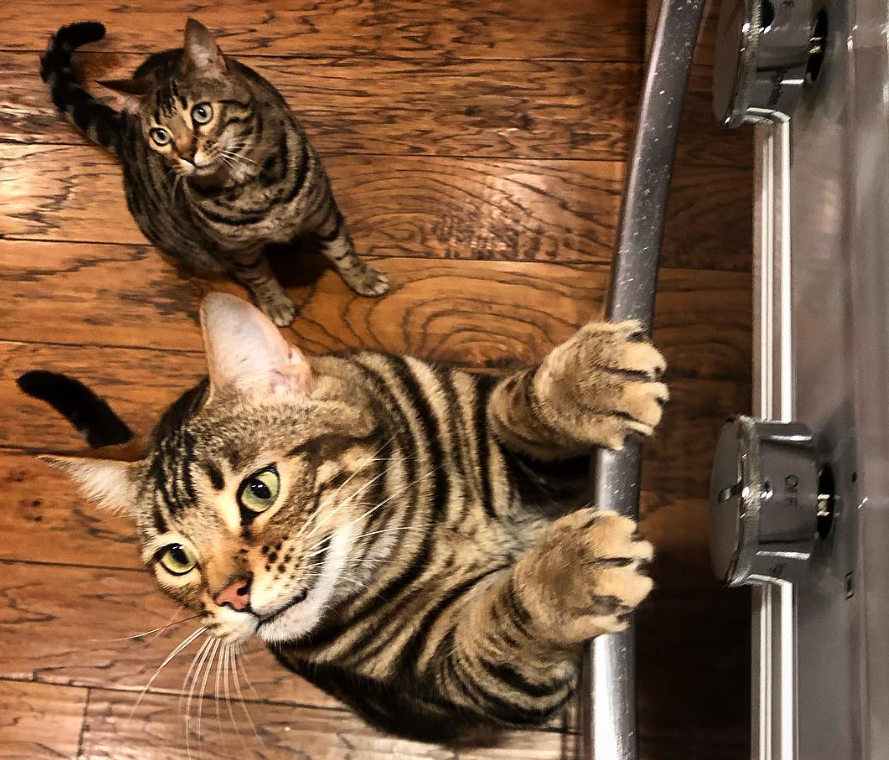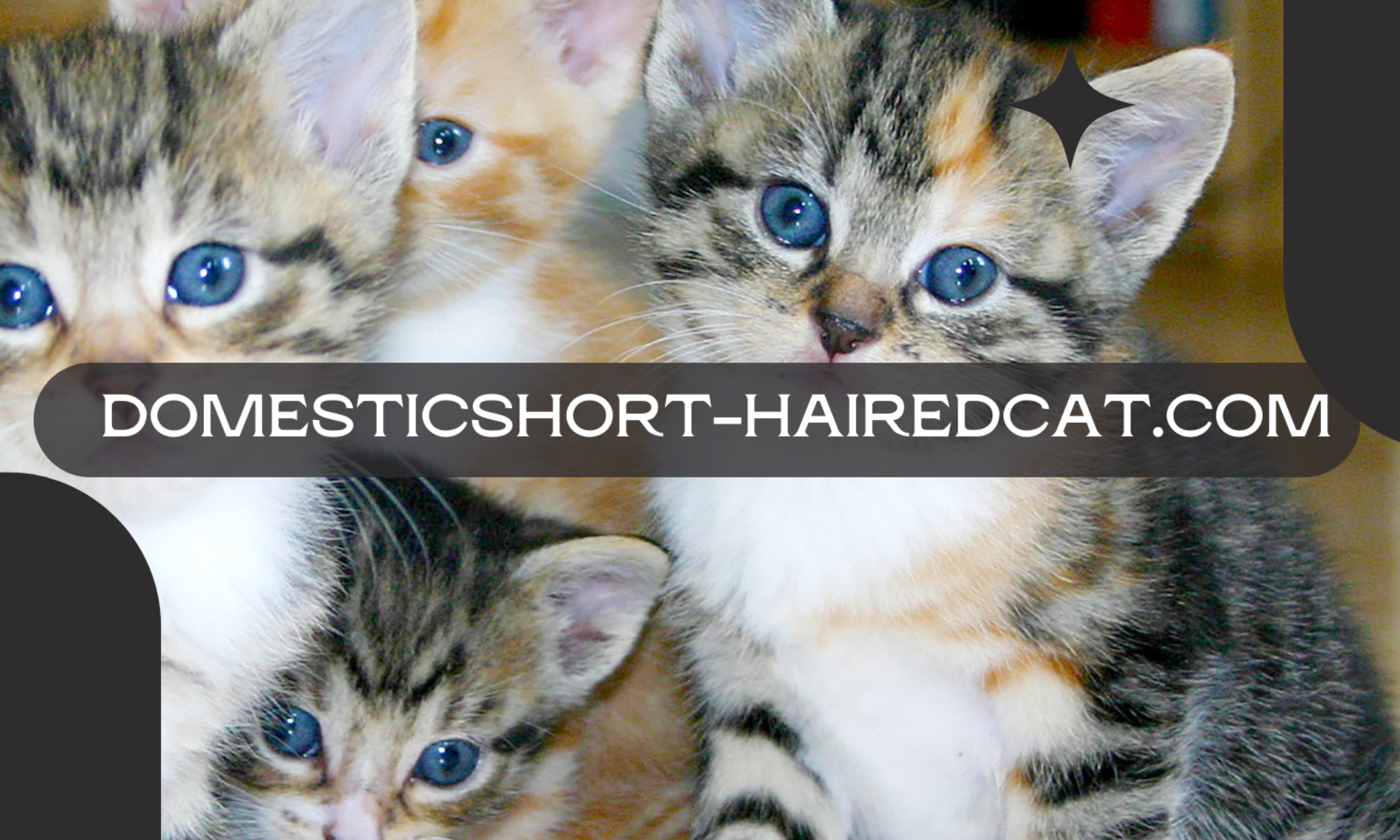As a kitty cat lover, I’ve always been fascinated by the various types of cats. One of the most interesting categories of cats are the small short-haired breeds. These cats are not only adorable but also very easy to care for, making them ideal pets for busy people.
Small short-haired cats come in a variety of breeds, each with its unique characteristics.
If you’re considering getting a cat but don’t have a lot of time to devote to grooming, a small short-haired breed might be an excellent choice. These cats require minimal grooming, which means you can spend more time playing with your furry friend.
In this article, I will delve deeper into the world of small short-haired cats, exploring the different breeds and their unique characteristics.
What are the top breeds of small short-haired cats?

As a cat lover, I know that choosing the right cat can be a tough decision. If you’re looking for a small cat with short hair, there are several breeds that might be perfect for you.
Here are some of the top breeds of small short-haired cats that you might want to consider:
1. Siamese Cats
Siamese cats are known for their short, fine coat and their striking blue eyes. They are intelligent, active, and affectionate cats that make great companions. They are also very talkative, so if you’re looking for a cat that will keep you company and entertain you with their chatter, a Siamese cat might be the perfect choice.
2. American Shorthair Cats
American Shorthair cats are a popular breed of cat that are known for their short, thick coat and their friendly, easy-going personalities. They are great with kids and other pets, and they make wonderful family pets. They are also very low-maintenance cats that require very little grooming.
3. British Shorthair Cats
British Shorthair cats are a breed of cat that are known for their short, plush coat and their round, chubby faces. They are calm, affectionate cats that are great for families with children and other pets. They are also very low-maintenance cats that require very little grooming.
4. Abyssinian Cats
Abyssinian cats are a breed of cat that are known for their short, fine coat and their active, playful personalities. They are intelligent, curious cats that love to explore and play. They are also very affectionate cats that love to be around their owners.
5. Burmese Cats
Burmese cats are a breed of cat that are known for their short, silky coat and their outgoing, affectionate personalities. They are very social cats that love to be around people and other pets. They are also very intelligent cats that can be trained to do tricks and respond to commands.
6. Munchkin Cats
Munchkin cats are known for their distinctive short legs, which result from a genetic mutation. Despite their short stature, Munchkin cats can have various coat colors and patterns.
7. Singapura Cats
These cats are often dubbed the “Singapore cat,” a captivating feline breed celebrated for its diminutive size, striking appearance, and amiable personality.
Originating in Singapore, this small to medium-sized cat boasts a fine-boned frame and a short, silky coat with a sepia agouti color pattern, resulting in a beautifully ticked or spotted appearance. Its large, expressive, almond-shaped eyes, typically in shades of green or hazel, add to the breed’s distinctive charm.
How do you care for small short-haired felines?
That’s a great question especially if you’re a first time kitty owner. Here are some tips on how to care for your furry friend.
1. Grooming
Small short-haired cats require minimal grooming. Regular brushing with a soft-bristled brush can help remove loose hair and prevent hairballs. A weekly bath with a mild shampoo can help keep your cat clean and healthy. Be sure to trim your cat’s nails regularly to prevent them from scratching furniture and people.
2. Nutrition
Small short-haired cats have unique nutritional requirements. A balanced diet that includes high-quality protein, carbohydrates, and essential fatty acids is essential for your cat’s health. Consult with your veterinarian to determine the best diet for your cat’s specific needs.
3. Exercise
Small short-haired cats are active and playful, and they require regular exercise to stay healthy and happy. Provide your cat with plenty of toys and playtime to keep them entertained and engaged. Consider investing in a scratching post to help your cat satisfy their natural scratching instincts.
4. Health
Regular visits to the veterinarian are essential for your small short-haired cat’s health. Schedule annual check-ups and vaccinations to prevent illnesses and diseases. Keep an eye out for any changes in your cat’s behavior or health, and contact your veterinarian if you notice anything unusual.
By following these tips, you can provide the best care for your small short-haired cat and ensure they live a happy and healthy life.
Which small short-haired cat breed is known for its affectionate nature?

When it comes to small short-haired cat breeds, one that stands out for its affectionate nature is the Abyssinian. These cats are known for being active, social, and intelligent, making them great companions for those who want a cat that is both playful and loving.
Abyssinians have short, fine coats that come in a range of colors, from ruddy to blue. They are medium-sized cats, weighing between 8 and 12 pounds, and have a lifespan of 9 to 13 years. These cats are also known for their distinctive, almond-shaped eyes and large ears.
One reason why Abyssinians are so affectionate is that they love to be around people. They are social cats that enjoy interacting with their owners and are known for following them around the house. They are also very playful and love to play games like fetch, making them a great choice for families with children.
Another reason why Abyssinians are so affectionate is that they are intelligent cats that enjoy learning new things. They are easy to train and can be taught to do tricks like sit, stay, and come when called. This makes them great companions for those who want a cat that is not only loving but also trainable.
What should I consider when adopting a small short-haired cat?
When considering adopting a small short-haired cat, there are a few things to keep in mind to ensure that you find the right cat for your lifestyle. Here are some factors to consider:
1. Activity Level
Small short-haired cats are generally known for their high energy levels.
They love to play and run around, so it’s important to make sure you have enough time and space to keep them active. If you’re someone who is often away from home or doesn’t have enough space for a cat to play, a small short-haired cat may not be the best fit for you.
2. Grooming Needs
One of the benefits of adopting a small short-haired cat is that they require minimal grooming compared to long-haired cats. However, they still need some grooming to keep their coat healthy and shiny.
Regular brushing can help remove loose fur and prevent hairballs. It’s also important to keep their nails trimmed to prevent them from scratching furniture or people.
3. Personality
Every cat has its own unique personality, and it’s important to find one that matches your lifestyle. Small short-haired cats are known for being playful, curious, and affectionate.
However, some cats may be more reserved or independent, so it’s important to spend time with them before adopting to ensure that their personality matches yours.
4. Health
When adopting a cat, it’s important to consider their health. Small short-haired cats are generally healthy, but they may be prone to certain health issues such as dental problems or obesity. Regular check-ups with a veterinarian can help prevent and treat any health issues that may arise.
By considering these factors, you can find the perfect small short-haired cat to add to your family.
Are there any health concerns specific to small short-haired cat breeds?
While small short-haired cats are generally healthy breeds, there are a few health concerns specific to them that we need to be aware of.
1. Obesity
Obesity is a common health concern for all cat breeds, including small short-haired cats. Overfeeding and giving your cat access to an excessive number of snacks can lead to obesity, which in turn can cause many other health problems.
Careful monitoring of their weight and food consumption is important. Cats that are overweight can develop back problems, joint pain, issues with mobility, and diabetes, among other health concerns.
2. Dental problems
Dental problems are another health concern that is specific to small short-haired cat breeds. These cats are prone to dental issues such as gingivitis, periodontal disease, and tooth decay. Regular dental check-ups and cleaning can help prevent these problems.
3. Heart disease
Small short-haired cats are also prone to heart diseases such as hypertrophic cardiomyopathy (HCM) and dilated cardiomyopathy (DCM).
HCM is a genetic condition that causes the walls of the heart to thicken, making it harder for the heart to pump blood. DCM, on the other hand, is a condition in which the heart becomes enlarged and weakened, leading to heart failure.
Regular check-ups with a veterinarian can help detect these conditions early and prevent them from progressing.
